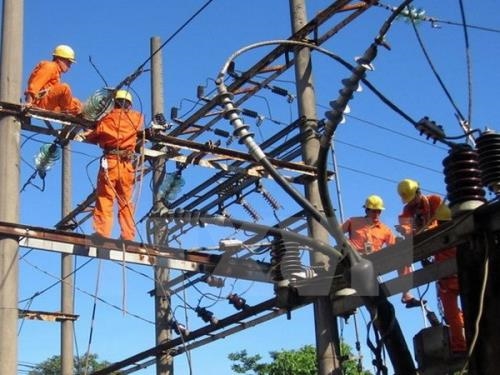 Economy
Economy

Việt Nam will temporarily halt the granting of Government guaratees for loans to for new projects from 2017 in order to ensure the safety level of public debt following the Prime Minister’s directive.
 |
| Government loans were mainly in sectors such as the power industry with the EVN getting the Government's backing for US$9.7 billion of loans, and the oil and gas industry with PetroVietnam getting $2.4 billion in Government-backed loans. — Photo bnews.vn |
HÀ NỘI – Việt Nam will temporarily halt the granting of Government guarantees for loans to new projects from 2017 to ensure a safe level of public debt following Prime Minister Nguyễn Xuân Phúc’s directive.
Government-backed loans will be gradually tightened from 2016.
Financing from the State budget-backed debt payment funds would be limited if firms could seek other funding sources. In addition, firms must be proactive in arranging funds to ensure repayment and negotiate with lenders to restructure loans.
The Prime Minister called for the enhanced supervision of Government-backed loans to ensure efficiency.
Government-backed loans for State-owned enterprises were estimated at around US$26 billion as of the end of 2015, more than 84 per cent of which came from foreign creditors, according to the finance ministry.
Government-backed loans accounted for 17.8 per cent of the total outstanding public debts and were equivalent to 11.1 per cent of the country’s gross domestic product.
The loans were mainly in sectors such as the power industry with the Electricity of Việt Nam getting Government’s backing for $9.7 billion of loans, and the oil and gas industry with PetroVietnam getting $2.4 billion of Government-backed loans.
Ministry of Finance statistics in June showed that as of the end of 2014, total public debt reached $106 billion, including Government debt and Government-backed debt.
Regarding foreign loans, the Prime Minister recently asked the State Bank of Việt Nam to closely watch loan limits for the repayment of foreign debts.
The finance ministry was asked to work with the Ministry of Planning and Investment and the Ministry of Justice on developing requirements for foreign loans to ensure the nation’s foreign loans lie within safe levels.
The Prime Minister also asked authorities to report about the capital structures of foreign direct investment (FDI) companies as a base for the evaluation of risks arising from the dependence on foreign loans of the FDI sector and measures to deal with multinational companies’ thin capitalisation.
Thin capitalisation, in which assets of firms are made up of a much greater proportion of debt than equity, can be used as a financial strategy to reduce tax obligations. — VNS




